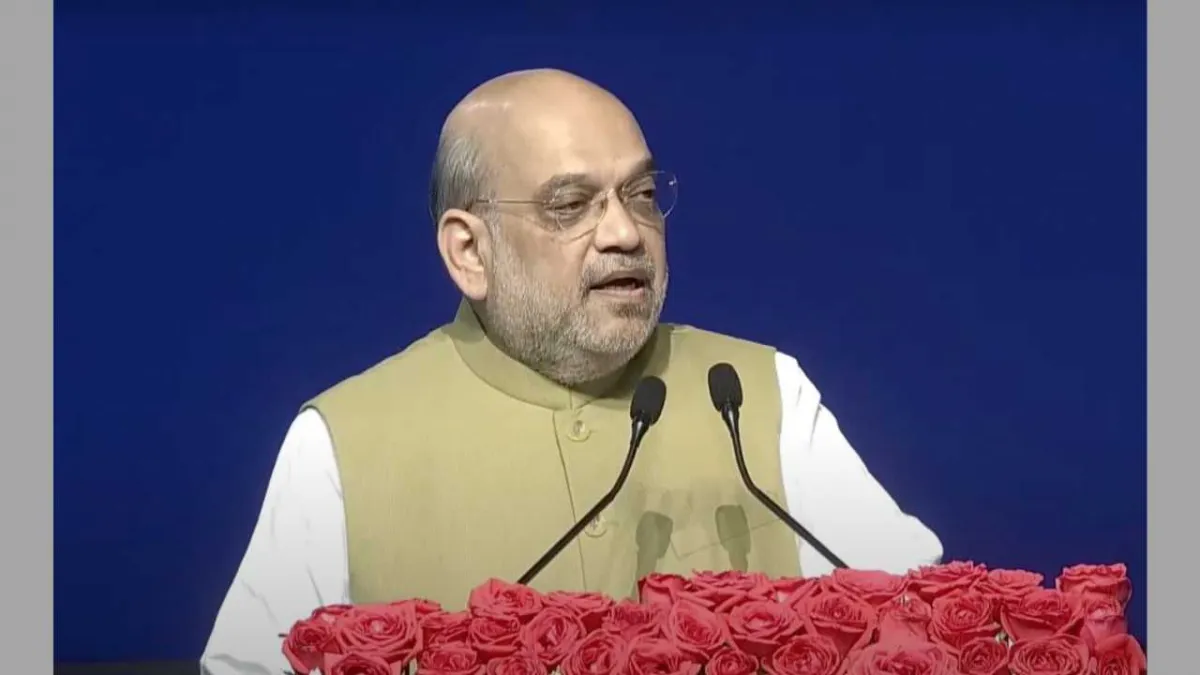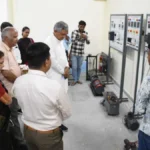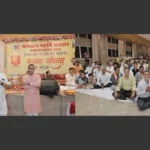Union Home Minister Amit Shah said on Wednesday that Operation Sindoor and Operation Mahadev sent a clear message to the masters of terror about the consequences of playing with the lives of Indian citizens.
Shah also said that Operation Sindoor provided reassurance to the people, and Operation Mahadev turned that reassurance into confidence.
Shah made these remarks while honoring the soldiers of the Indian Army, Jammu and Kashmir Police, and CRPF (Central Reserve Police Force) who successfully carried out Operation Mahadev and eliminated the terrorists involved in the Pahalgam attack.
In response to the terrorist attack in Pahalgam on April 22, the armed forces launched Operation Sindoor in May, targeting terrorist bases and military installations in Pakistan and Pakistan-occupied Kashmir. The Pahalgam attack had resulted in 26 casualties.
Through Operation Mahadev, security forces eliminated the terrorists involved in the Pahalgam massacre in July.
Shah said, “Operation Sindoor and Operation Mahadev have sent a clear message to the masters of terror about the consequences of playing with the lives of Indian citizens.”
The Home Minister stated that security forces have shown the world that no matter what strategy terrorists adopt, they can no longer harm India and escape.
He said that when tourism in Kashmir was at its peak, the Pahalgam attack was a failed attempt to derail the “Kashmir Mission”.
Shah said that alongside the army and paramilitary forces, the Jammu and Kashmir Police is now also playing a leading role in the fight against terrorism.
The Home Minister said, “Whether it’s the ruling party or the opposition, everyone expressed joy and enthusiasm regarding Operation Sindoor and Operation Mahadev and extended gratitude to the security forces.”
He said that this very faith in national security is the foundation of India’s aspiration to achieve the top position in the world in every field.
Shah said that the forensic laboratory of the National Investigation Agency (NIA) proved that the terrorists killed during Operation Mahadev were the same ones who carried out the Pahalgam massacre.
The Home Minister said, “On behalf of the Prime Minister (Narendra) Modi and the entire nation, I congratulate the security forces for strengthening the sense of security in the hearts of Indian citizens.”
Operation Sindoor
I am not familiar with a cultural site or historical event known as “Operation Sindoor.” This term does not correspond to a recognized place, monument, or significant cultural practice in available records. It is possible the name is misspelled, from a very localized context, or refers to a fictional concept.
Operation Mahadev
I am not familiar with a cultural or historical site known as “Operation Mahadev.” This term does not appear to refer to a place or monument but is more commonly associated with a specific law enforcement or military-style operation, often related to anti-narcotics or anti-mafia efforts in India. Without more specific context, I cannot provide a historical summary of a place by this name.
Pahalgam
Pahalgam is a scenic hill station and town in the Indian union territory of Jammu and Kashmir, nestled in the Lidder Valley. Historically, it was a humble shepherd’s village before developing into a popular tourist destination and a starting point for the annual Amarnath Yatra pilgrimage. Its name, translating to “Valley of Shepherds,” reflects its pastoral origins.
Jammu and Kashmir Police
The Jammu and Kashmir Police is the law enforcement agency for the Indian union territory of Jammu and Kashmir. It was originally established by the Dogra rulers in the 19th century and has a complex history shaped by the region’s unique political and security challenges.
CRPF
The Central Reserve Police Force (CRPF) is India’s largest central armed police force, established in 1939 as the Crown Representative’s Police. It is a paramilitary force primarily responsible for assisting state and union territories in police operations to maintain law and order and counter insurgency.
National Investigation Agency
The National Investigation Agency (NIA) is a central agency established by the Indian government in 2009 in the wake of the 2008 Mumbai terror attacks. Its primary mandate is to investigate and prosecute offenses affecting the sovereignty, security, and integrity of India. It serves as India’s central counter-terrorism law enforcement agency.
Kashmir Mission
The Kashmir Mission refers to Christian missionary activities initiated in the Kashmir Valley during the 19th century, primarily by European and American groups. Its history is tied to the broader colonial-era missionary movement, which sought to establish schools and hospitals alongside its religious work. While it left a legacy of some educational and medical institutions, it did not achieve widespread conversion in the predominantly Muslim region.
Indian Army
The Indian Army is the land-based branch and the largest component of the Indian Armed Forces, tracing its origins to the armies of the East India Company in the 17th century. It was formally established in its current form after India gained independence from British rule in 1947. The army has a storied history of defending the nation’s sovereignty and is also a key contributor to major U.N. peacekeeping missions worldwide.






